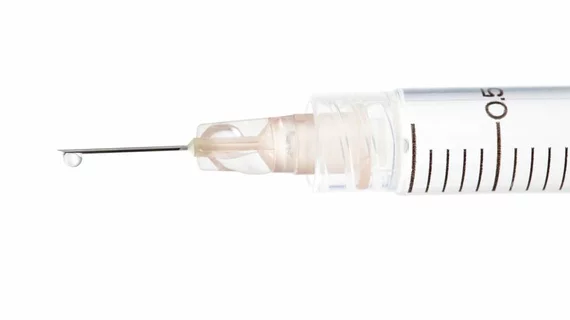A study published in the European Heart Journal on Feb. 18 suggests healthcare expenditures in Europe would skyrocket if local systems adopted experts’ latest guidelines for cholesterol-lowering treatment.
The inflated costs, first author Ali Allahyari and colleagues wrote, would be largely due to an increase in the use of PCSK9 inhibitors, which have been proven in recent years to help lower LDL-cholesterol in at-risk patients already taking maximally tolerated statin therapy. But only one in three people can actually afford the drugs at their $14,000-per-year price point, and studies have found that nearly two-thirds of patients eligible for the medication are rejected for coverage by insurers.
Guidelines issued by the European Society of Cardiology and European Atherosclerosis Society in August 2019 recommend substantially lowering LDL-C in patients at risk for heart disease—especially higher-risk patients. For people at a very high risk of CVD, the guidelines suggest lowering LDL-C by at least 50%, to less than 1.4 millimoles per liter of blood.
Reaching those targets can be tough, especially for patients who already struggle to keep their cholesterol in check with statins and ezetimibe. For those people, the ESC and EAS recommend adding a PCSK9 inhibitor to the mix.
Allahyari et al. predicted the implications of those new guidelines in a population of 25,000 people in the SWEDEHEART database, all of whom suffered heart attacks between 2013 and 2017 and had their cholesterol measured for a subsequent 6 to 10 weeks. The authors found that more than half of SWEDEHEART patients would be unable to reach LDL-C goals using statins and ezetimibe alone, suggesting over 50% would be eligible for PCSK9 inhibitors like alirocumab and evolocumab.
When those two drugs were simulated in patients whose LDL-C was too high even with statin therapy, around 90% attained the ESC’s LDL-C target, Allahyari and colleagues said. But it’s not all positive news—the annual cost of treating a patient with PCSK9 inhibitors in Sweden would be around 4,500 euros, compared to just 30 euros with statins or ezetimibe.
“PCSK9 inhibitors are clearly effective cholesterol-lowering drugs which may reduce the risk of cardiovascular events, but they come at a substantial cost,” Allahyari, a resident physician in cardiology and doctoral student at Danderyd Hospital, Karolinska Institutet, said in a release. “If half of the patients with heart attacks would be eligible for this drug, the financial burden on health systems throughout Europe and other countries using the ECS/EAS guidelines may be substantial unless the cost of treatment is reduced.”
The team predicted that using the PCSK9 inhibitor alirocumab to prevent one major adverse CV event, like a heart attack, would cost around 846,000 euros in Sweden, or 8.9 million Swedish kronor.
“Many new therapies are being tested and introduced in cardiovascular medicine today,” Peter Ueda, a co-author on the study, said in the release. “Our analyses highlight yet another situation for which we need to consider what we deem reasonable in terms of the number of patients being treated, the expected health gains and cost.”

